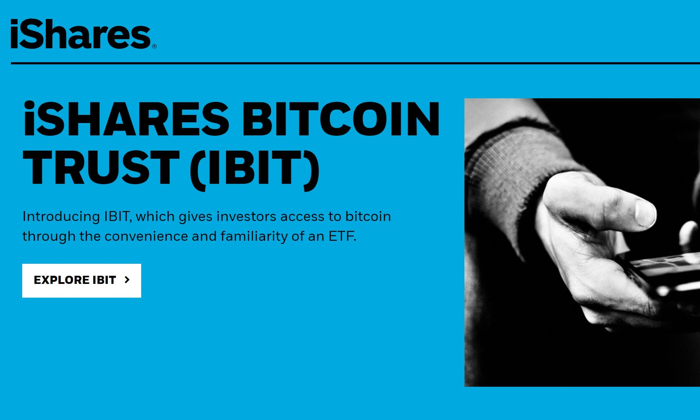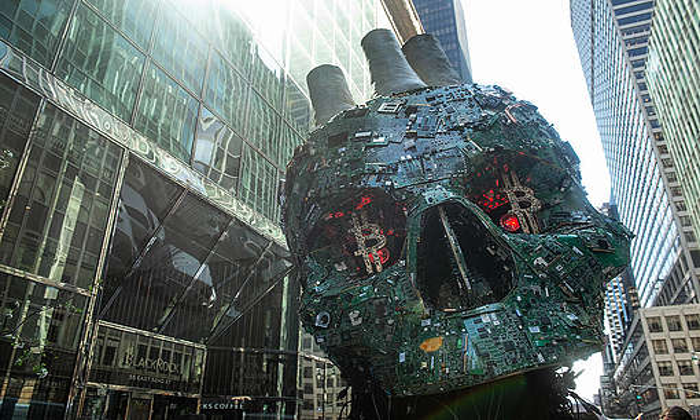Panama Bitcoin reserve has emerged as a topic of significant interest, particularly following Panama City Mayor Mayer Mizrachi’s intriguing post on May 16. His brief mention of a “Bitcoin reserve” has sparked speculation about the potential for Panama to adopt a similar financial strategy as El Salvador, which has successfully integrated Bitcoin into its national reserves. This conversation gains momentum with key figures like Max Keiser, who advised the Salvadoran government on its Bitcoin policy, hinting at a regional shift toward cryptocurrency adoption. As Panama contemplates its own role in this Bitcoin revolution, the implications for cryptocurrency reserves are profound, inviting further discussion on Bitcoin financial literacy and how it can empower the nation. The prospect of Panama moving forward with a Bitcoin reserve reflects a broader shift in Central America toward innovative financial solutions that could redefine economic stability in the region.
The potential establishment of a Bitcoin reserve in Panama represents a groundbreaking step towards cryptocurrency integration in national finance. Recently, there has been a buzz surrounding Mayer Mizrachi’s intriguing comments, which suggested that Panama might follow in the footsteps of its neighbor, El Salvador, known for its proactive approach to Bitcoin adoption. Central American countries are increasingly contemplating utilizing digital currencies as a reserve asset, a concept that has gained traction amid global economic uncertainties. By enhancing financial literacy focused on digital currencies, Panama could lead a transformative movement, educating its citizens about cryptocurrency’s benefits and functionalities. The convergence of cryptocurrency reserves with national policy could pave the way for a new financial paradigm in Panama, mirroring El Salvador’s pioneering efforts in the realm of Bitcoin.
The Potential of Panama’s Bitcoin Reserve
Panama City Mayor Mayer Mizrachi’s recent comment about a potential Bitcoin reserve has ignited discussions about the role of cryptocurrencies in national finance. Following his meeting with Max Keiser—an architect of El Salvador’s Bitcoin policy—speculation is rife that Panama may look to establish a Bitcoin reserve similar to that of its Central American neighbor. The implications of such a move are profound, positioning Panama as a leader in Bitcoin adoption and reshaping its financial landscape. With growing global interest in national crypto reserves, Mizrachi’s remarks underscore how crucial Bitcoin might be as both an asset and a hedge in uncertain economic times.
El Salvador has already set an example by accumulating Bitcoin for its state reserves, having acquired over 6,000 BTC. Drawing parallels, Panama’s advancements in cryptocurrency adoption pave the way for a possible reserve initiative. Integrating Bitcoin into national savings could strengthen Panama against economic volatility while promoting local Bitcoin financial literacy. As discussions progress, the potential Bitcoin reserve could transform Panama into a hub for cryptocurrency, advancing both its economic stability and global influence.
Mayer Mizrachi and Bitcoin Adoption in Panama
Mayer Mizrachi, as the Mayor of Panama City, is at the forefront of cryptocurrency adoption within the region. His efforts aim to integrate digital assets into everyday life, which began with allowing citizens to utilize cryptocurrencies like Bitcoin for public payments. This pioneering step places Panama City among the global trailblazers in municipal cryptocurrency acceptance. By enabling these transactions, Mizrachi is not only modernizing the financial operations of the city but also promoting a culture of Bitcoin acceptance and understanding among its residents.
Under Mizrachi’s leadership, the city council has taken bold steps in forming a framework for a digital economy, reflecting the demand for flexibility in the financial sector. The integration of cryptocurrencies for municipal payments illustrates a progressive response to the increasing relevance of digital currencies worldwide. By nurturing this environment, Panama is setting the stage for further Bitcoin adoption, making it vital for financial literacy efforts to keep up, ensuring the community understands these concepts and benefits.
El Salvador’s Bitcoin Policy and its Influence on Panama’s Strategy in Cryptocurrency Education and Adoption
El Salvador’s decisive move to adopt Bitcoin as legal tender has undoubtedly influenced regional attitudes towards cryptocurrencies, prompting countries like Panama to reassess their financial strategies. While El Salvador has successfully integrated Bitcoin within its economy, Panama seeks to learn from its experiences. Discussions featuring Keiser and Herbert indicate that Panama could be influenced by El Salvador’s financial policies, potentially leading to a new wave of Bitcoin adoption fueled by lessons learned from the neighboring country’s journey.
In light of this, Panama is not just following in El Salvador’s footsteps; it is also capitalizing on the opportunity to educate its youth about digital assets. The collaboration between Panama City and El Salvador to spread awareness about Bitcoin through the
Frequently Asked Questions
What does the term ‘Panama Bitcoin reserve’ imply about the city’s financial strategy?
The ‘Panama Bitcoin reserve’ refers to the potential strategy by Panama City Mayor Mayer Mizrachi to adopt Bitcoin reserves for the city’s financial framework. This comes after discussions with influential figures from El Salvador’s Bitcoin policy, indicating a proactive approach to integrate cryptocurrency into public finance and possibly build a Bitcoin reserve.
How does Mayer Mizrachi’s vision for a Bitcoin reserve compare to El Salvador’s Bitcoin policy?
Mayer Mizrachi’s interest in a Panama Bitcoin reserve mirrors El Salvador’s Bitcoin policy, which successfully incorporated Bitcoin into its national reserves. El Salvador currently holds 6,178 BTC as part of its financial strategy, setting a precedent that Panama may follow to enhance its economic resilience through Bitcoin adoption.
What impact could a Panama Bitcoin reserve have on cryptocurrency adoption in the region?
The establishment of a Panama Bitcoin reserve could significantly accelerate Bitcoin adoption in the region, promoting cryptocurrency reserves as a viable option for governments. This may inspire other Central American nations to explore similar initiatives, leveraging Panama’s hydroelectric resources alongside El Salvador’s geothermal energy to power Bitcoin mining.
How is Panama City enhancing financial literacy related to Bitcoin and cryptocurrencies?
Panama City is enhancing financial literacy by integrating El Salvador’s ‘What is Money?’ textbook into its educational system. This initiative aims to teach students and teachers about financial principles through Bitcoin, supporting the city’s wider adoption of Bitcoin and ensuring its residents are informed about cryptocurrency use.
What recent developments have occurred in Panama regarding cryptocurrency adoption?
Recently, Panama City has made strides in cryptocurrency adoption by allowing digital assets for municipal payments. This initiative enables citizens to pay taxes and fees using Bitcoin, Ethereum, and stablecoins, marking a significant move towards the formal integration of cryptocurrency into public administration.
How does Panama’s approach to Bitcoin reserves reflect global trends in cryptocurrency policies?
Panama’s consideration of Bitcoin reserves reflects a growing global trend where countries, inspired by policies like those in El Salvador, are exploring cryptocurrency reserves as a means to navigate financial uncertainty. This shift indicates increasing acceptance of Bitcoin as a serious financial asset at the national level.
What role could Mayor Mayer Mizrachi play in the future of Bitcoin in Panama?
Mayor Mayer Mizrachi could play a pivotal role in the future of Bitcoin in Panama by leading initiatives to potentially establish a Bitcoin reserve. His engagement with notable figures in crypto policy and his commitment to promoting digital literacy suggest a forward-thinking approach that could solidify Panama’s position in the cryptocurrency landscape.
| Key Points | Details |
|---|---|
| Mayor Mizrachi’s Speculation | The Mayor hinted at a possible Bitcoin reserve with a post on May 16 after meeting with Max Keiser and Stacy Herbert, advocates of Bitcoin policies. |
| Meeting with Bitcoin Advocates | Mizrachi’s meeting with Keiser and Herbert, significant figures in El Salvador’s Bitcoin policy, implies discussions about a potential Bitcoin reserve. |
| El Salvador’s Strategy | El Salvador holds 6,178 BTC, valued at approximately $644 million, as part of its national Bitcoin strategy. |
| Panama City’s Crypto Adoption | Panama City is already accepting digital assets for public payments, including Bitcoin and Ethereum, indicating a shift towards cryptocurrency in governance. |
| Financial Literacy Initiative | The city’s digital libraries will include the textbook ‘What is Money?’ to educate the youth about financial principles and Bitcoin. |
| Future Engagements | Mayor Mizrachi is slated to speak at the Bitcoin 2025 Conference, indicating growing alignment with global crypto leaders. |
Summary
The Panama Bitcoin reserve is becoming a significant topic of discussion in financial circles. Mayor Mayer Mizrachi’s recent hints at establishing a Bitcoin reserve indicate strong interest in cryptocurrencies. Following meetings with key figures from El Salvador’s Bitcoin strategy, the city is already embracing a forward-looking financial approach by accepting digital currencies for public payments. The integration of financial literacy initiatives reflects Panama City’s commitment to educating its citizens on Bitcoin and its principles. As other nations explore similar paths, Panama is positioning itself as a potential leader in the regional Bitcoin movement.
Panama Bitcoin reserve has recently become a hotspot of interest, particularly following Mayor Mayer Mizrachi’s intriguing social media post hinting at a potential reserve formation. This announcement has sparked conversations around Bitcoin adoption in Panama, especially as officials look to El Salvador’s Bitcoin policy for inspiration. The meeting with prominent Bitcoin advocates Max Keiser and Stacy Herbert underscores Panama’s strategic movement toward integrating cryptocurrency reserves into its financial framework. As these developments unfold, the local government seems poised to innovate in the realm of financial literacy surrounding digital currencies, creating a unified approach to educating citizens about Bitcoin. By embracing cryptocurrency in both governance and education, Panama could position itself as a catalyst for broader cryptocurrency adoption in Central America, similar to its neighbors.
The potential establishment of a national cryptocurrency reserve in Panama has attracted significant attention, reflecting a broader trend in Bitcoin exploration among countries. Panama, led by forward-thinking officials like Mayor Mayer Mizrachi, seems to be taking cues from El Salvador’s impactful initiatives in digital currency management. Discussions around Bitcoin utilization as a governmental financial reserve could signify a changing landscape in monetary strategies across the region. Moreover, the collaboration with key Bitcoin personalities hints at a keen interest in harnessing cryptocurrency to bolster economic resilience. As various nations, including Ukraine, investigate their own cryptocurrency policies, Panama’s proactive stance may pave the way for enhanced financial literacy and adoption of digital assets among its citizens.















